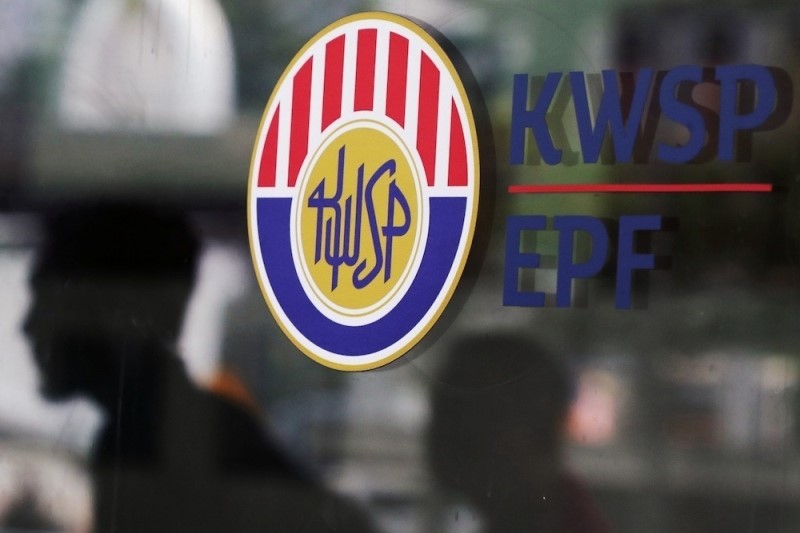
KUALA LUMPUR, May 18 — The Employees' Provident Fund (EPF) disagrees that there is a need to allow Malaysians a fifth round of special early withdrawal from their retirement savings this year, as there is no emergency situation now unlike during the earlier days of the Covid-19 pandemic.
EPF chief strategy officer Nurhisham Hussein said its studies found that only withdrawals made during the first to third rounds under i-Lestari, i-Sinar and i-Citra were genuinely for contributors' daily needs such as the purchase of food and goods as well as to pay debts, Utusan Malaysia reported today.
“But when it entered the Special Withdrawal which was the fourth during last year's Hari Raya totalling over RM40 billion, the withdrawals were more for other matters such as to invest including to buy gold and for emergency savings,” he was quoted as saying.
Nurhisham said that allowing a fifth round of withdrawal would affect EPF's long-term investment strategy as it would not be able to invest as much as desired and that this would have an impact on next year's dividends to its contributors.
He noted that the economy has reopened and that there were more job opportunities now compared to the start of the pandemic when vaccinations were not available.
He acknowledged that a number of Malaysians remain financially troubled, but said there are also those who lose their jobs during non-pandemic times.
Nurhisham said there are other options available in the form of aid, incentives or loans through organisations such as SME Corp, Majlis Amanah Rakyat, and Amanah Ikhtiar Malaysia, especially for the hardcore poor or those looking to start a business.
He said the original objective of EPF was to help working Malaysians save up for post-retirement and called for a return to this purpose.
Nurhisham also told the Malay daily that Malaysia is the only country which allowed its contributors to make four rounds of special withdrawals and which eventually came up to a total RM145 billion.
He said there were other countries that allowed its working citizens to take out from their pension funds during the height of the pandemic in 2020 and 2021, but limited the number of withdrawals, listing Australia and Chile as examples.
“We are the only ones who made withdrawals four times,” he was quoted as saying, adding that the amount allowed to be withdrawn through the various government schemes were also the highest. He said neither Singapore nor India allowed its workers to withdraw from their pension funds.
According to Nurhisham, the amount of EPF savings withdrawn by Malaysians exceeded the Gross Domestic Product (GDP) of many countries.
The first two rounds of special withdrawals were the i-Lestari and i-Sinar schemes in 2020, while the third round was the i-Citra in July 2021, which EPF had previously said was to help contributors meet their urgent needs for cash flow during the country's movement control orders during the pandemic and the subsequent economic slowdown.
EPF previously said its contributors withdrew a total of RM101 billion from their retirement savings under these special withdrawals as of end 2021.
On March 16 last year after then prime minister Datuk Seri Ismail Sabri Yaakob announced the fourth round of EPF special withdrawals, EPF said members who remain financially impacted by the Covid-19 pandemic could withdraw up to RM10,000. But on March 16 last year, EPF said it believed the fourth round "should be the last facility allowed under the special withdrawal initiative" as the country rebuilds the economy and with more people having returned to work, voicing its concern again over whether its members have enough savings for their retirement.
On April 16, 2022 which was just weeks away from the April 30 closing date for applications for the fourth round of special withdrawals, the EPF said it had already received 5.3 million applications for withdrawals totalling RM40.1 billion under the fourth round.
On April 16, the EPF had at that time found the top three reasons for these applications of special withdrawals under the fourth round were reduction in income (24 per cent), assist affected spouse or family members (23 per cent) and increase sources of income (14 per cent); while the use of funds would be to supplement daily or monthly essential expenditure (40 per cent), settle outstanding debts (26 per cent), increase emergency fund (eight per cent), assist affected family members (seven per cent), and the remaining 19 per cent for other purposes such as paying for children's education, non-essential spending and investment.
“The EPF reminds members to consider their long-term income security and only withdraw their savings if it is absolutely necessary, and utilise the money wisely and for appropriate purposes,” the EPF had said at that time.
Source: https://www.malaymail.com/news/malaysia/2023/05/18/report-epf-says-no-to-another-round-of-special-withdrawals-calls-for-return-to-funds-original-purpose/69791

